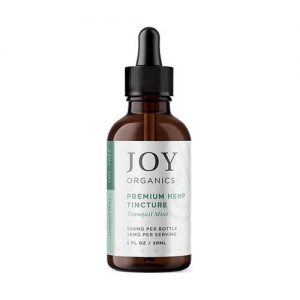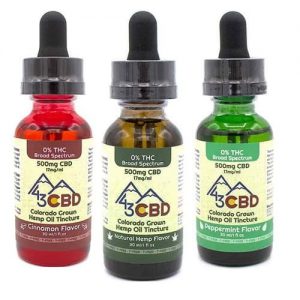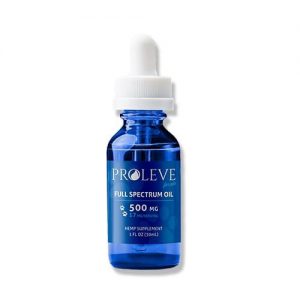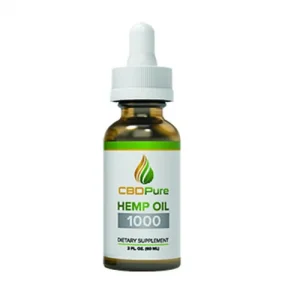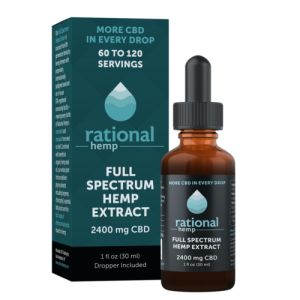CBD, or cannabidiol, is the non-psychoactive extract of cannabis plants that many have come to know and love over the past few years. It’s an excellent way to ease into the world of medical marijuana because it doesn’t contain THC (the compound in cannabis that gets you high).
If you suffer from chronic anxiety or depression, this natural supplement may be able to give you some relief from your symptoms, but it can take some trial and error to find the right dosage for you.
Depression is a serious mental disorder that affects millions of people around the world. Sadly, it can be a very difficult condition to overcome on your own and many people seek help from medications or therapy.
However, there is another option available that many people are starting to believe in CBD. Keep reading to learn everything you need to know about cannabidiol for depression!
What Is CBD Oil?
CBD oil is a natural oil that is extracted from the hemp plant. It has a host of potential health benefits, including reducing anxiety and depression. CBD oil is also being studied for its potential to treat other conditions, such as chronic pain, arthritis, and cancer.
CBD oil contains active compounds that interact with the body’s endocannabinoid system. The endocannabinoid system helps to regulate mood, pain, appetite, and inflammation.
When CBD oil is used, it can help to improve mood and reduce anxiety by interacting with the endocannabinoid system.
CBD oil is available in a variety of forms, including tinctures, capsules, edibles, and topicals. The best way to take CBD oil depends on your personal preferences and needs.
Some people prefer to take it sublingually (under the tongue), while others prefer to add it to food or beverages.
CBD oil is generally considered safe to use, but it can cause some side effects, such as dry mouth, diarrhea, and fatigue. It is also important to note that CBD oil may interact with certain medications.
If you are taking any medications, it is always best to talk to your doctor before using CBD oil.
How Does It Help Depression?
CBD has been shown to be effective in treating depression. A study published in the Journal of Clinical Psychiatry found that cannabidiol can help to reduce symptoms of depression.
The study found that cannabidiol is as effective as antidepressant medication in treating depression.
CBD works by interacting with the body’s endocannabinoid system. This system is responsible for regulating mood, sleep, appetite, and pain. When the endocannabinoid system is not functioning properly, it can lead to feelings of anxiety and depression.
CBD helps to restore balance to the endocannabinoid system, which can help to reduce symptoms of depression.
CBD is a safe and effective treatment for depression. It has few side effects and can be used long-term. If you are considering using CBD for your depression, be sure to talk to your doctor first.
What Are The Best Strains?
There are many different strains of cannabis, and each one offers its own unique set of benefits. While some strains are better for relaxation, others can provide a more energizing effect. And still, other strains can be helpful for managing pain or reducing anxiety.
So, what are the best strains? It really depends on what you’re looking for. If you’re looking to relax, then a strain like Blue Dream or Granddaddy Purple is a good choice. For an energizing effect, try a strain like Green Crack or Sour Diesel.
And if you’re looking for something to help with pain or anxiety, then a strain like ACDC or Harlequin is a good option.
Of course, this is just a generalization and there are many other great strains out there. But these are some of the most popular and well-known strains that offer a variety of benefits.
So depending on what you’re looking for, one of these strains might be the best choice for you.
Where Can You Buy It?
CBD can be found in a variety of places. You can purchase it online, at a dispensary, or even at some grocery stores. However, it is important to make sure that you are buying CBD from a reputable source.
This is because there are a lot of fake products on the market that claim to be cannabidiol but are actually made with synthetic ingredients.
When buying CBD, always look for products that have been tested by an independent third-party lab. This ensures that the product contains the amount of CBD that is advertised on the label.
It is also important to make sure that the product does not contain any harmful contaminants.
If you are unsure of where to buy CBD, your best bet is to ask your doctor for a recommendation. They may know of a reputable source that you can purchase from.
How Much Should You Take?
When it comes to CBD, there is no one-size-fits-all dosage. It depends on a variety of factors, including your weight, age, and tolerance.
That said, most experts recommend starting with a low dose and increasing gradually as needed. For instance, if you’re using CBD oil for anxiety, start with a small amount (like 10-20 drops) and see how you feel after a few days.
If you don’t notice any improvement, increase the dose slightly and see how you respond.
It’s also important to keep in mind that CBD is cumulative. In other words, the more you take, the longer it will stay in your system. So if you’re taking a low dose and not seeing any results after a few days, it’s unlikely that increasing the dose will make a difference.
If you’re unsure about how much to take or what dosage is right for you, talk to your doctor or qualified healthcare professional. They can help you figure out what’s best for your individual needs.
How Long Before I See Results?
This is a common question with a not-so-simple answer. It really depends on the person and their unique body chemistry. Some people see results from taking CBD immediately, while for others it can take up to two weeks or longer.
If you’re wondering how long it will take for you to see results from taking CBD, the best thing to do is start with a low dose and increase gradually over time until you reach the desired effect.
This method is often referred to as “titrating” and it allows your body to adjust to the CBD at its own pace.
It’s also important to keep in mind that CBD is not a miracle cure-all and it won’t work for everyone. If you don’t see any results after taking CBD for a couple of weeks, it’s possible that it just isn’t right for you.
Don’t give up hope though! There are plenty of other natural remedies out there that might be worth trying.
Can Everyone Take It?
A non-euphoric substance called CBD is present in the cannabis plant. The anti-inflammatory, anti-anxiety, and anti-seizure effects of CBD have been demonstrated. In addition to oils, pills, sweets, and vaporized liquids, cannabidiol can be consumed in a variety of ways.
The adverse effects of cannabidiol are generally well tolerated, however, some people may notice changes in appetite, diarrhea, or dry mouth.
Depression is a common mental disorder that affects millions of people worldwide. Symptoms of depression can include feelings of sadness, hopelessness, irritability, fatigue, and difficulty concentrating. CBD has been shown to help alleviate some symptoms of depression.
CBD is thought to work on depression by interacting with the body’s endocannabinoid system. This system regulates mood, sleep, appetite, and pain perception. Some studies have found that cannabidiol can increase levels of serotonin, a neurotransmitter that plays a role in regulating mood.
Although more research is needed to confirm the efficacy of CBD for depression, it is considered safe for most people to try. Cannabidiol is available in many forms, including oils, capsules, edibles, and vaporized liquids.
You can start with a low dose and increase gradually as needed. Be sure to talk to your doctor before taking cannabidiol if you are taking any medications as CBD may interact with them.
Any Side Effects?
CBD is generally considered safe and well-tolerated. However, like all substances, it can cause side effects in some people. The most common side effects of CBD are drowsiness, dry mouth, and lightheadedness.
Some people may also experience diarrhea, changes in appetite, and fatigue. In rare cases, cannabidiol can cause more serious side effects such as liver damage or psychosis.
If you experience any side effects after taking cannabidiol, stop taking the supplement and consult a doctor. CBD is generally considered safe for most people, but it is always best to speak with a healthcare professional before starting any new supplement regimen.
Conclusion & Alternative Treatments
CBD has been shown to be an effective treatment for depression. It can help to improve mood, reduce anxiety, and improve sleep. However, it is important to remember that cannabidiol is not a cure for depression.
If you are experiencing symptoms of depression, it is important to seek professional help.
There are a number of alternative treatments for depression that you can explore. These include therapy, medication, and lifestyle changes. Talk to your doctor about what might be best for you.
Conclusion
We hope this blog post has been helpful in answering some of your questions regarding cannabidiol and its potential benefits for depression. While more research is needed in this area, many people have found relief from taking CBD oil.
If you’re considering trying CBD oil for your depression, be sure to talk to your doctor first to see if it’s right for you. There are also other alternative treatments for depression that you can explore.


